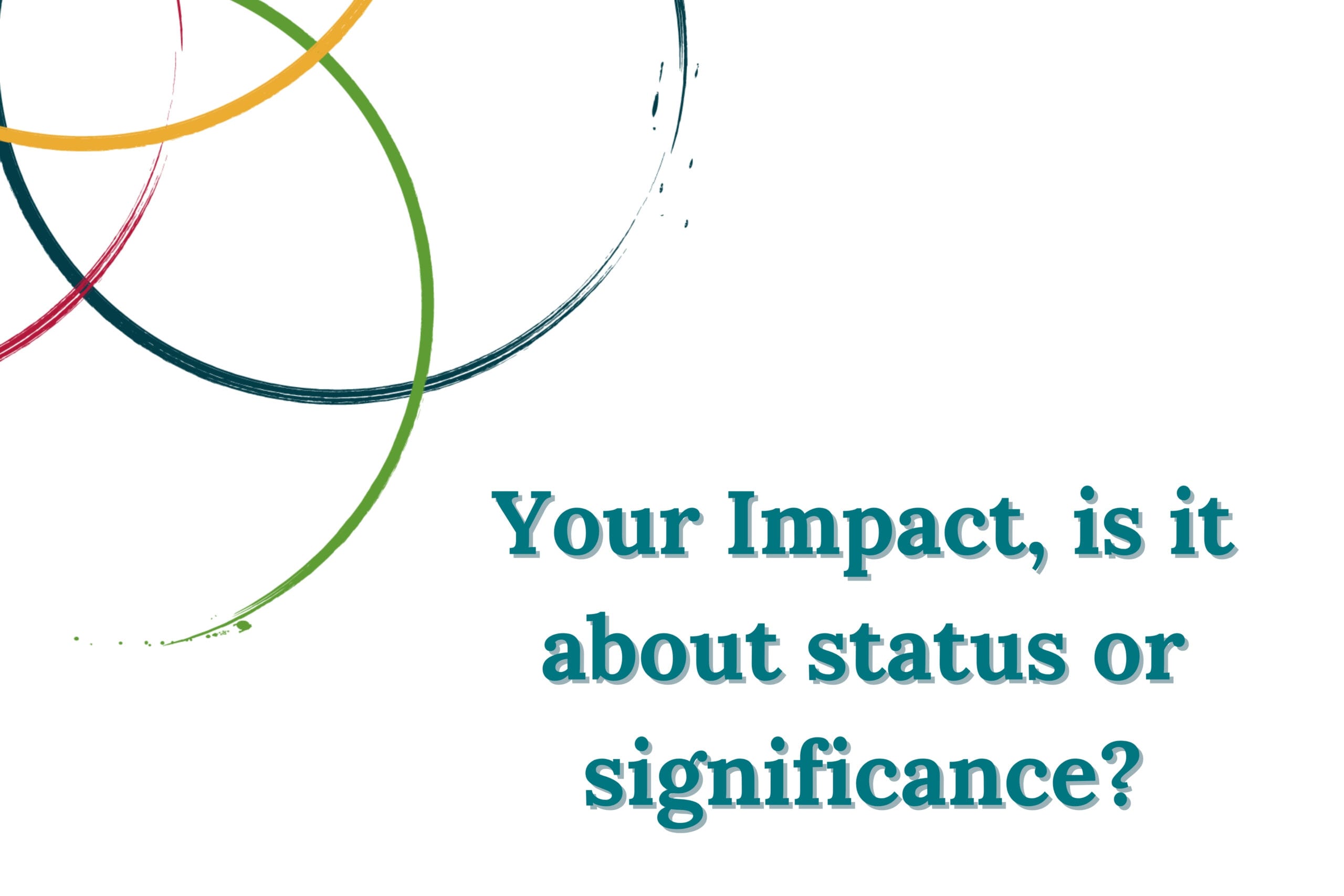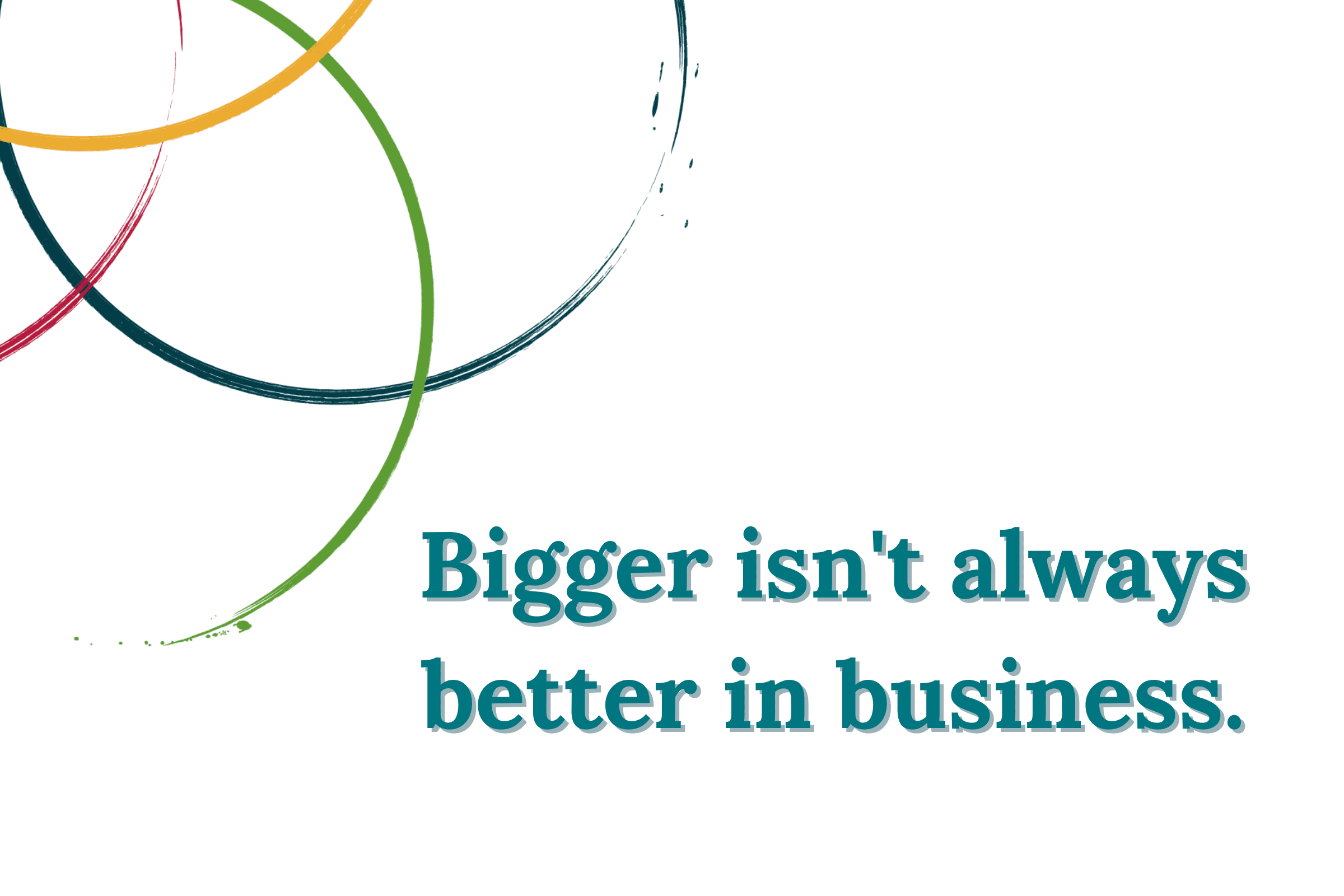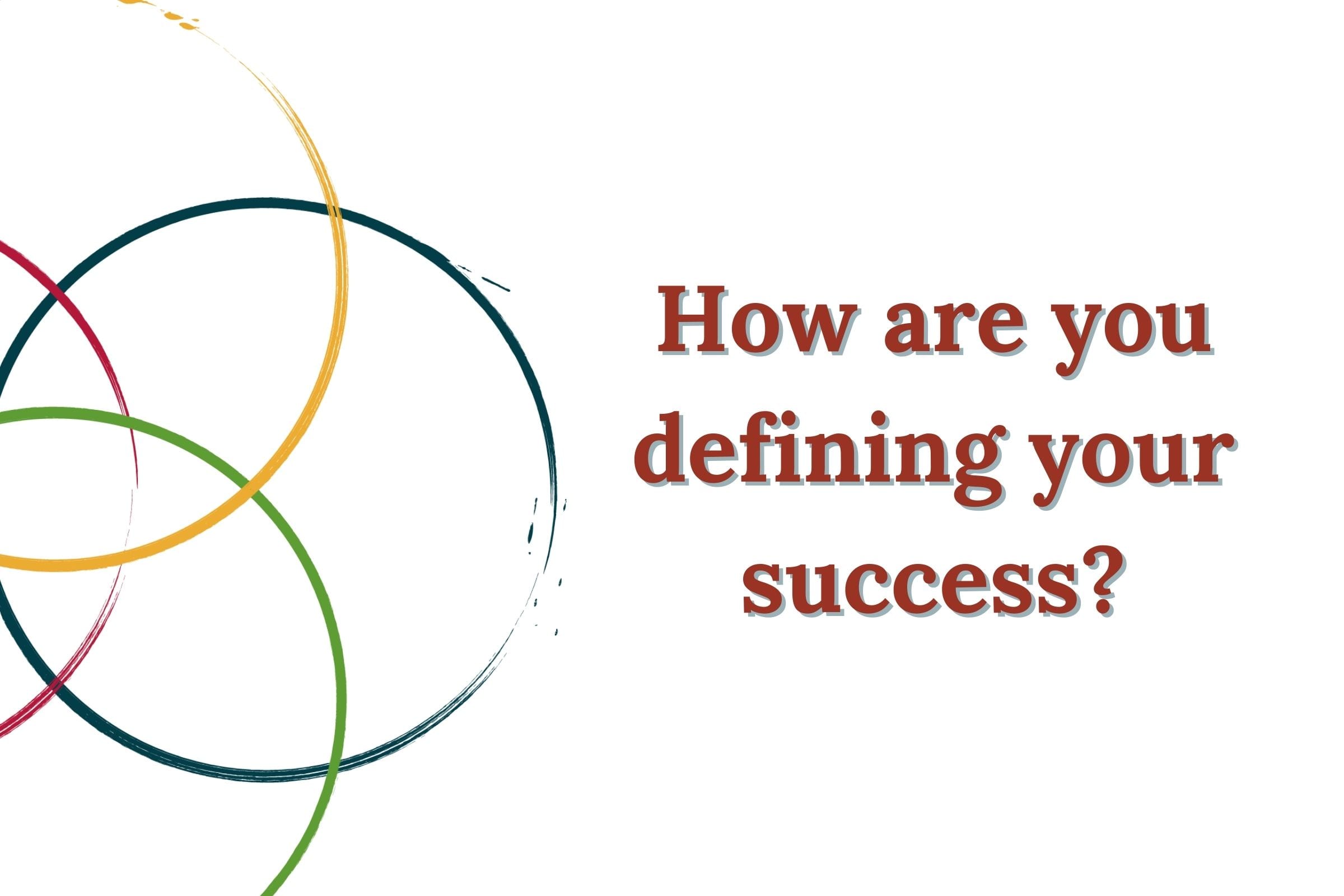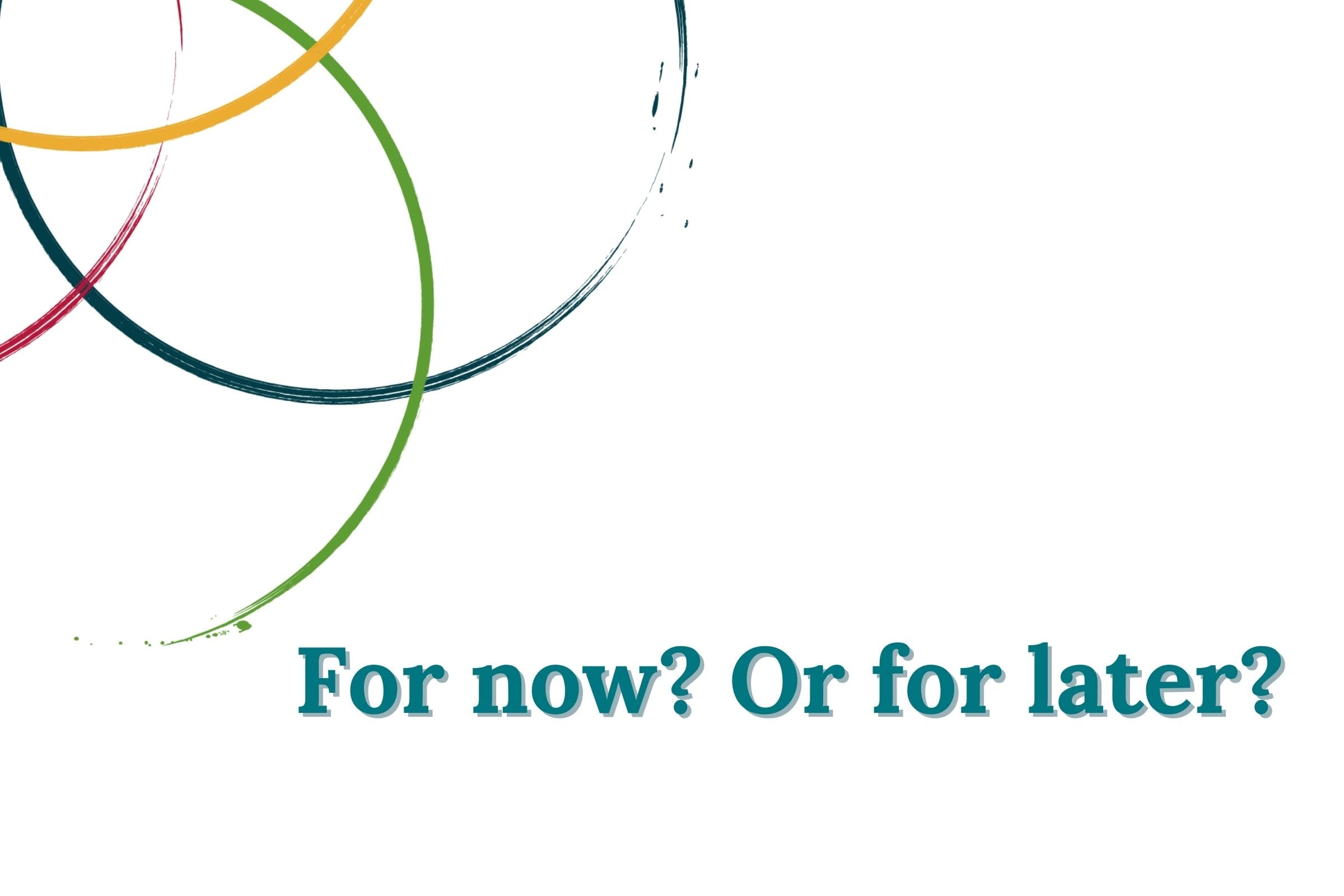Two things have happened recently to get my brain cogs whirring on this topic. Firstly, I read a book (this is a common occurrence) and the book stated that “impact is the new status symbol” and, secondly, I saw that Facebook had donated £1m to Bletchley Park to save it from closure, following the coronavirus shutdown.
I am not going to lie, my inner cynic got a little overactive and started dancing to the tune of tax breaks and image recovery. I hope I am seeing things that aren’t there and that the gesture was wholly conscience and contribution driven. However, it did start me thinking in a way that made me desperately sad.
I started to think about businesses and the potential power of their impact. In my own coaching practice, I recognise the important role businesses have to play in ensuring a sustainable future for people and planet, and, I focus solely on businesses with a social conscience, because they are the businesses that I want to see grow in this world.
The ones where business owners are wanting to do well, whilst also doing good.
From a personal perspective I support the causes that are dear to my heart locally and do not find it necessary to walk around with a sandwich board strapped to my chest saying “look at me, I give back”.
It is becoming more apparent to me that, for some businesses, social responsibility, be it philanthropy, environment conservation, workplace diversity, employment practices or community outreach, has become a “should”, or a branding and marketing hook, or, at worst, a status symbol instead of a genuine desire to do something significant, meaningful and benevolent.
Is impact yet another “good” thing that commercialisation is going to get it’s hands on, like manifestation, purpose, self acceptance and love, and rinse it for all it is worth in the market place. Is impact about to become the next marketers buzzword?
Has it already?
Now, I understand that being socially responsible is part of business survival in today’s economy. There is no doubt that consumers are drawn to a story that aligns with their worldview, and that they are more likely to trust, respect and support businesses that take a stance on important social issues. It also seems to me that leading global businesses have started to speak more in terms of what they are “giving back”, in order to manage perceptions and align to consumer expectations. However, I still get the sense that in many cases this is a “tick box” exercise.
Far more about optics than outcomes.
“Oh crap, we need a sustainability policy, quick download one and stick it on the website”; or “hell, we better offset our footprint before we get called out, tell them we are planting trees”. This is a bit of a token gesture approach, if that, instead of a well-considered, heart-centred, authentic desire to find and contribute to a cause that has true meaning, either to the business owner or related to the industry the business operates within. An effort to put back what is being taken out; planting trees willy-nilly just doesn’t cut it.
Some might wonder whether it matters. Why am I getting my undergarments in a tangle? Surely the motivation doesn’t matter as long as a contribution is being made. An outcome is an outcome.
Think about that for a second.
How would you feel if someone spent money on you for the sake of a quiet life, and not because they actually wanted to, had put any thought into it, or thought it was important; especially when the option of keeping the money and spending it on themselves was felt to be a better use of it?
Does the motivation matter? Or are you happy to receive that gift?
I believe that it does matter.
I believe that the intention behind any action is just as important as the action itself.
I believe that when things are done for the “right” reasons their energetic impact and reach is far greater than when things are done for the sake of it, or for the image and are incongruent or out of value alignment. In my experience, just throwing money at things never really has a good outcome.
I don’t think you can overstate the importance of alignment in business, nor the power of action motivated by real meaning.
“The future is doing good and making money simultaneously.” Cindy Gallop
Cindy Gallop suggests that gone are the days of “we make money here and then we write cheques to clear our conscience over there” and that the future will be “we make money because we do good” – a business model of shared action plus shared values equals shared profit. The idea that financial profit and societal profit will go hand in hand.
So what does that mean for small businesses?
I think it is a lot simpler than you might initially think. You might not have the capacity of the Gates Foundation but that doesn’t mean you can’t take a considered, comprehensive, congruent approach to being genuinely socially responsible.
The key is not to jump on and attach yourself to the closest, seemingly appropriate cause. The key is to find something that you really want to stand for, somewhere you want to make a difference; and to do that you have to know yourself first.
As a business or an individual, look inside yourself first – what do you see, the answer will already be there. What are you about? What do you stand for? What do you believe? What are your values? What makes you jump off the couch and shout at the telly? What are your responsibilities, because of who you are and what you do?
Then look at how this reflects in the world, as it really is – where are the societal stems? How can you channel your values or take greater responsibility for your industry. How can you apply this to real world problems? What part do you want to play in creating a better future? How can use your humanity to improve the human experience?
Once you have found your thing then you can reimagine your business model around it. It needs to be integrated into the culture and daily operations of your business.
I have a wonderful client who fell in love with Kenya and wanted to make an actual difference to the lives of school children, not just throw money at a charity. She is also a massive advocate for foot health and the importance of well-fitting shoes. She probably owns the last two shoe shops in the country that actually still take the time to measure your feet! Every year (apart from 2020 for obvious reasons), she collects good quality, worn school shoes, using her shops as collection points, and self-funds a trip to Kenya with suitcases full of shoes. She takes her family and some trained volunteers and they go and fit the shoes to the feet of the children, personally, making sure her “donation” reaches destination and has the desired impact.
Inspiring.
Inspiring and fully integrated into her business model, extending the life of each pair of shoes she sells, in an industry where there is a lot of wastage as kids feet grow so fast!
Which brings me to the last step, once you have integrated it you need to live it. You need to lead it. Communication through demonstration – don’t just tell, show!
How is your business a catalyst for system level change?
How much good are you doing in the world?
This might be the moment to point out that your impact does not need to be “global”.
You can start with your internal business practices, are they truly aligned to your values? There is no point advocating for fair trade if you are not even paying your employees a living wage! What about your diversity policies and protocols? Does your diversity and inclusion strategy go beyond legal compliance, seek to add value to your business and contribute to employee well-being and engagement?
Doing good can absolutely be about how you conduct business within your business.
You can start in your community. A business is only as strong as the community that supports it.
Local businesses need help at the moment and the ones that will survive and even thrive will be the ones that mean something to the community they are in, because of the contribution they have made to that community. It could be the sponsoring of festive lights, or free meals for children unable to access school meals during half term. When you find ways to support the families and businesses that make up your immediate community; you will always find the spirit of reciprocity – it means something to people.
You can start in your industry. What is the “negative” impact of your industry on people and planet? What can you do to reduce this impact? How can you offset this impact? How can you counterbalance this impact? Keep it relevant.
Nearly every industry will have a “waste” issue because goods are meeting the demand for competitive pricing at the expense of being “built to last”. How can you help recycle, reuse or redistribute? How can we prolong the life of every purchase?
What is the environmental impact of your industry? Can you consider alternative energy sources or make changes to your supply chain so that everything you do is aligned to what you believe is best.
Steve Jobs said that things don’t have to change the world to be important. Each of us has some honest, deeply felt reason why our work and our goals are meaningful. And hopefully, directly or indirectly, we’re all on a mission to do some good.
It doesn’t matter if you are creating jobs that pay a living wage, solving social problems or spreading ideas that trigger positive change, as long as it is done from the heart of the business leader; from a genuine place of service, significance and the desire to make a difference and not driven by Mandy in the PR department who thinks it would be good for your “image”.
You can thrive and grow whilst simultaneously solving the pressing problems in your community, your industry and beyond. This is what win-win looks like – when you are living what you believe, what matters, and leading what you live; that is when you will inspire those around you to move with you. Business is becoming more and more about movements.
Do it for significance, not for status.
This pandemic is proving that the world will never be the same. Things have completely broken down. It is time to shift from transactional behaviours to transformational behaviours. This is the time when new ways of doing things can successfully emerge.
We have a chance, right now to seize the opportunity, decide what we want the future to look like and make it happen.
By doing it differently we can really make a difference.





